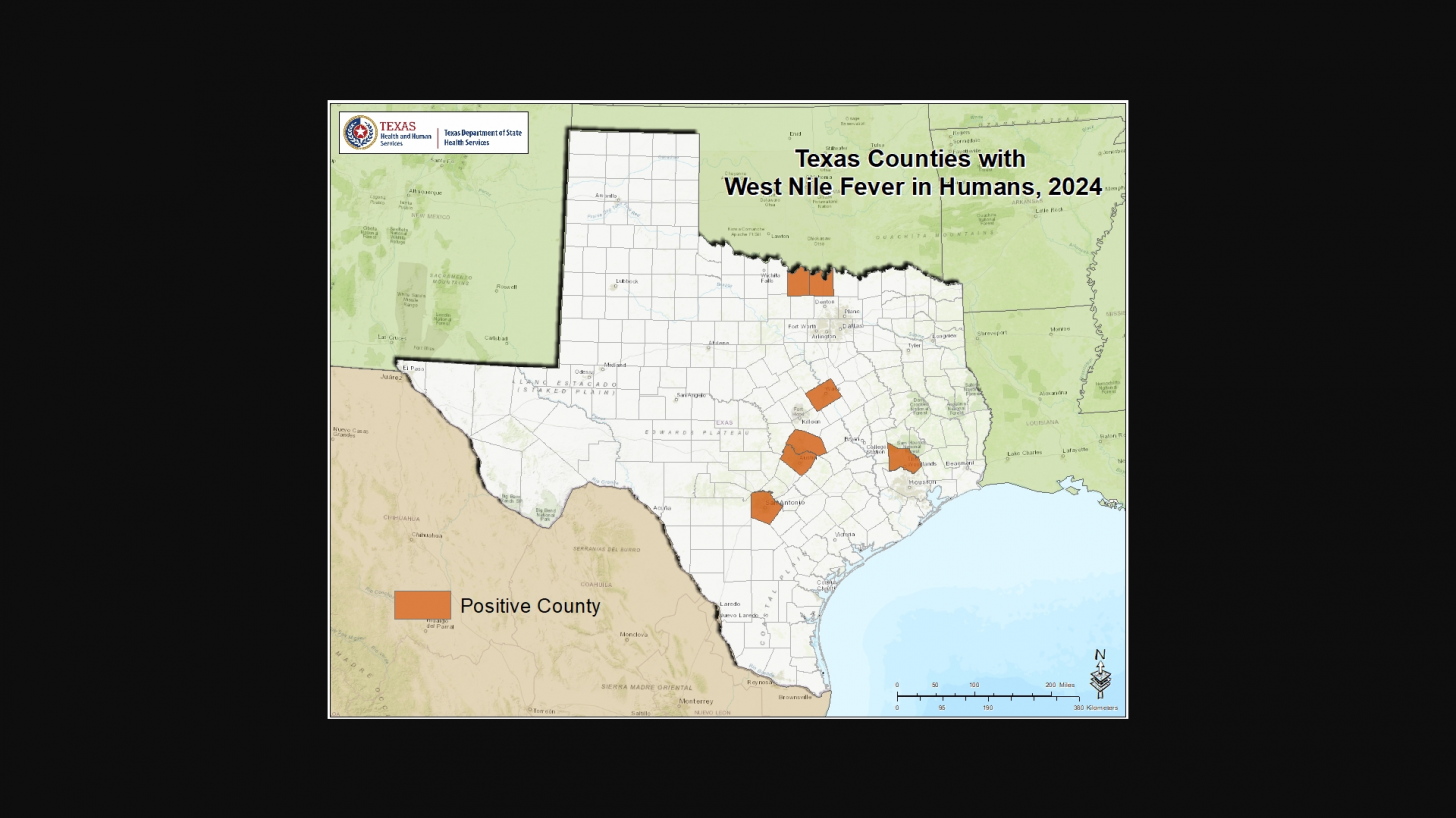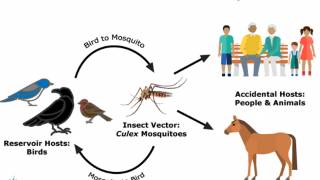Texas Leads This Year's West Nile Virus Outbreak

Recent media coverage has highlighted the rarely discussed mosquito-borne disease that is leading causes about 1 out of 150 infected people to develop a serious, sometimes fatal, illness.
Since the U.S. Centers for Disease Control and Prevention (CDC) first detected West Nile virus (WNV) in the United States in 1999, the annual number of reported cases has varied widely. WNV detections usually occur during the summer and extend into the fall season, especially in the southern states.
So far this year, about 464 West Nile cases have been reported in 33 states across the continental United States. In 2023, the CDC confirmed 2,566 WNV cases.
As of the end of August 2024, the state of Texas is the unfortunate leader this year, followed by Nebraska, Nevada, and California in the current ranking.
The Texas Department of State Health Services weekly report issued on August 29, 2024, confirmed 39 WNV cases and two related deaths this year. In 2023, Texas reported 90 cases and six deaths.
Most WNV cases in Texas have been reported near Dallas (19) and Houston (27).
The CDC says WNV cannot be transmitted from humans to humans with the disease. The dominant mode of transmission, by far, is through mosquito bites. Humans are also believed to be “dead-end hosts,” meaning that a mosquito that bites an infected human will not transmit the virus to another human.
However, there have been documented cases of transmission through blood transfusion, organ transplantation, and, rarely, from mother to baby during pregnancy and breastfeeding.
From a prevention perspective, Harris County Public Health’s Mosquito Control and Vector Control Division (MVCD) conducted an aerial spray operation in August 2024 to reduce the number of mosquitos.
“Harris County is experiencing an increase of WNV infection in mosquitoes and infections in humans. This situation has prompted the need to supplement the ongoing countywide Ultra Low Volume ground treatment with aerial treatment in the designated areas to protect the health of our community members better,” said Dr. Maximea Vigilant, MVCD Director, in a press release on August 9, 2024.
In Europe, WNV cases have been reported this year by Austria, Bulgaria, Croatia, France, Germany, Greece, Hungary, Italy, Romania, Spain, Albania, Serbia, and Kosovo.
Furthermore, while several veterinary vaccines have been licensed, WNV human vaccines have not progressed beyond phase 2 clinical trials.
In phase 2 trials, the ChimeriVax-WN02 live attenuated recombinant yellow fever vaccine strain expressing the premembrane and envelope genes had a good safety profile and immunogenicity after a single dose.
Several factors have hindered WNV vaccine candidates, deploying various technologies, such as live attenuated chimeric, DNA, recombinant subunit, and inactivated whole-virus vaccines, from progressing into phase 3 clinical development.
These challenges include implementing vaccine efficacy studies.
In April 2024, the CDC conducted a meeting with the primary purpose of informing the public of the 'next steps' toward the deployment of a human WNV vaccine.
Our Trust Standards: Medical Advisory Committee
























